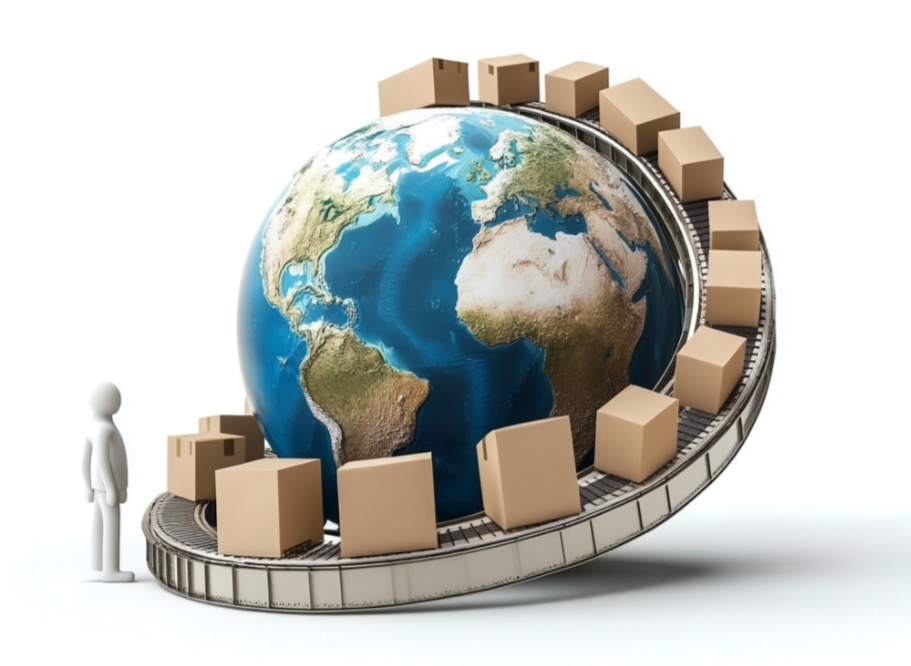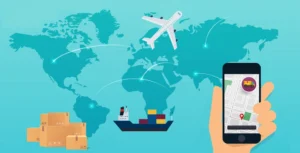In this comprehensive guide, we explore everything you need to know about customs brokerage services—what they are, what they do, the importance of hiring customs brokers, and how they can transform the way businesses operate in international markets. Whether you’re new to global trade or looking to optimize your existing processes, this guide is here to answer all your questions.
Understanding Customs Brokerage Services
At its core, customs brokerage services are specialized solutions provided by licensed professionals or agencies, known as customs brokers, who act as intermediaries between importers/exporters and government customs authorities. Their primary role is to facilitate the legal and efficient clearance of goods across international borders.
Customs brokers have deep expertise in customs laws, trade agreements, tariff schedules, and documentation requirements, enabling them to offer critical assistance in navigating the regulatory landscape. From multinational corporations to small businesses, customs brokerage services have become an indispensable part of international trade.
The Growing Need for Customs Brokers
- Global Trade Complexity: With the growing number of regional trade agreements and import/export restrictions, the regulatory environment has become more complex than ever before.
- Compliance Challenges: Keeping up with evolving customs laws and avoiding penalties is a priority for businesses.
- Supply Chain Optimization: Delays in customs clearance can disrupt the entire supply chain, leading to financial loss and missed opportunities.
These factors underline the necessity of partnering with expert customs broker agencies to overcome logistical and regulatory roadblocks.
The Role of a Customs Broker
Customs brokers wear many hats to ensure their clients’ goods clear customs without delays or compliance issues. Their responsibilities extend far beyond preparing documentation—they act as problem solvers, compliance specialists, and trade advisors.
Key Functions of Customs Brokers:
- Import and Export Documentation: Customs brokers prepare and submit all necessary paperwork, including commercial invoices, bills of lading, and certificates of origin, ensuring compliance with all regulations.
- Customs Clearance: They liaise directly with customs authorities to expedite the clearance of goods. Their role includes resolving any issues that may arise during inspections or documentation verification.
- Tariff Classification: Customs brokers are experts in the Harmonized System (HS) of tariff classification. This ensures goods are categorized correctly, which has a direct impact on duties and taxes.
- Duties and Taxes Calculation: They accurately calculate import duties, value-added taxes (VAT), excise duties, and other relevant charges. This eliminates surprises and helps businesses plan their finances more effectively.
- Regulatory Expertise: By staying abreast of ongoing changes in trade policies, customs brokers advise businesses on compliance issues to avoid penalties or shipment delays.
- Consultation on Trade Agreements: They leverage free trade agreements and preferential tariffs to minimize costs and maximize benefits for businesses.
- Resolving Customs Disputes: In cases where shipments are held up due to compliance or classification issues, customs brokers quickly resolve disputes, ensuring minimal operational disruption.
Real-Life Example:
A mid-sized electronics company exporting goods to multiple countries relied on customs broker services to classify their products accurately under preferential tariff programs such as NAFTA. By doing so, the company saved up to 15% in duties in each target market, significantly improving its operating margins.
How Customs Brokerage Services Work
If you’re new to the concept, here’s a simplified outline of how a customs broker agency supports businesses:
- Businesses provide shipment details such as the type of goods, destination, and any pre-existing documentation.
- The customs broker prepares the required forms, calculates the duties, and verifies compliance with the target country’s regulations.
- The broker acts as a liaison with customs authorities to ensure smooth entry of goods.
- Once the shipment clears customs, the broker provides clients with tracking updates and organizes logistics for onward transportation if needed.
This end-to-end service ensures that the administrative burden on businesses is minimal while compliance and efficiency remain high.
Choosing the Right Customs Broker
The success of your international trade operations largely depends on the reliability and expertise of the customs broker you choose. Here are key considerations:
- Reputation and Experience: Look for customs broker companies with a proven track record and certifications such as NCBFAA (National Customs Brokers and Forwarders Association of America) membership.
- Technology Integration: Opt for brokers who use advanced platforms to streamline documentation, provide real-time shipment visibility, and automate compliance checks.
- Specialization: For niche industries such as pharmaceuticals or luxury goods, choose brokers who specialize in handling sector-specific customs issues.
- Transparent Customs Broker Fees: Ensure that the fees align with your business needs and that there are no hidden charges for additional services.
- Global Network: A customs broker with a robust international presence can offer superior service, especially when handling multi-country shipments.
The Cost of Compliance: Customs Broker Fees
Understanding the cost structure of customs broker services is crucial for budgeting and assessing return on investment (ROI). Most brokers charge based on a combination of factors:
- Complexity of the Shipment: High-volume or highly regulated goods typically incur higher fees.
- Service Level Requirement: Businesses requiring full-spectrum services may pay more than those seeking basic customs clearance.
- Geographical Scope: Custom broker fees vary by destination, as different regions have different regulatory requirements.
Fee Structure Breakdown:
- Flat service fee (for documentation and filing)
- Percentage of shipment value (usually 1%–4%)
- Additional charges for dispute resolution or expedited services
By balancing costs with operational efficiencies, businesses can achieve significant long-term savings.
Success Stories: How Customs Brokers Add Value
Countless businesses have benefited from engaging customs brokers. Below are a few standout examples:
- Case Study 1: Apparel Industry
A global clothing brand faced constant delays and penalties due to non-compliance with textile-specific import regulations. Upon engaging a customs broker agency, they implemented HS code accuracy checks and training for their internal teams. As a result, clearance delays reduced by 85%, and the company expanded to two new markets. - Case Study 2: Pharmaceutical Company
A pharmaceutical company exporting critical medicines encountered excessive customs checks. A specialized customs broker guided them through compliance certifications and negotiating fast-track clearances under essential goods exemptions. This improved their delivery timelines by 30%.
Practical Tips for Optimizing Customs Brokerage Services
To maximize the benefits of customs brokerage services:
- Leverage Data Analytics: Many customs brokers now offer analytics dashboards to identify cost-saving opportunities, such as duty refunds via duty drawback mechanisms.
- Integrate Supply Chain Systems: Connect your inventory and logistics platforms with customs brokers’ systems to enhance operational visibility.
- Regular Compliance Audits: Work with your broker to conduct routine audits to preempt regulatory risks.
- Proactively Monitor Policy Changes: Sign up for updates or newsletters from your customs broker agency on trade agreement modifications and tax variations.
Conclusion
Customs brokerage services are indispensable for businesses seeking to thrive in the intricate world of global trade. By offering expert guidance, seamless compliance processes, and risk mitigation strategies, customs brokers enable companies to focus on their core operations while achieving cost savings and operational excellence.
Whether you’re an importer shipping electronics from Asia or an exporter expanding to new markets in Europe, engaging a reputable customs broker agency is a strategic investment. So, take the first step towards optimizing your cross-border trade operations today, and ensure your business stays ahead in the global marketplace!




